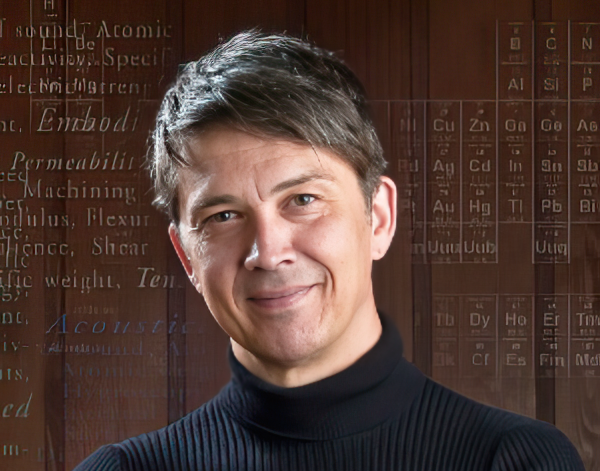MARVEL Distinguished Lecture — Gerbrand Ceder
It will take place on Thursday, January 30, 2025, 3 pm (CET).
Practical details:
- In-person participation: room MED 2 1124 (Coviz2), EPFL
- Remote participation: Zoom link

How the future of science may look: AI and autonomous laboratories for materials synthesis
Gerbrand Ceder, University of California Berkeley
Computational materials science has seen tremendous progress since the early days of Density Functional Theories. Stable algorithms enabled high-throughput computing which in turn enabled machine-learned potentials (MLP). Though far from perfect at this point, MLPs hold tremendous promise for accelerating materials simulation and discovery.
Such progress is not parallelled on the experimental side, making it the gating factor in materials development. In response we built, A-lab, an autonomous facility for the closed-loop synthesis of inorganic materials from powder precursors. All synthesis and characterization actions in A-lab, including powder mixing and grinding, firing, characterization by XRD and SEM, and all sample transfers between them are fully automated, leading to a lab that can synthesize and structurally characterize compounds within 10-20 hrs of initiation. The A-lab leverages ab-initio computations through an API with the Materials Project, historical data sets that are text-mined from the literature, machine learning for optimization of synthesis routes and interpretation of characterization data, and active learning to plan and interpret the outcomes of experiments performed using robotics. The automation of synthesis and analysis can be further integrated into scientific workflows similar to computational workflows.
About the speaker
Gerbrand Ceder is the Samsung Distinguished Professor of Engineering at UC Berkeley and a Senior Faculty Scientist at LBNL where he combines theory, computation, machine learning, and experiments to develop novel materials for energy storage. He has published over 550 papers with over 130,000 citations and a Hirsch index of 182. He holds more than 50 US and foreign patents. He is a member of the National Academy of Engineering of the US, the Royal Flemish Academy of Belgium for Science and The Art, and the American Academy for the Arts and Sciences. He is a Fellow of MRS, APS, TMS, and ECS, and has received awards from the Electrochemical Society, the Materials Research Society, the Metals Minerals and Materials Society, and the International Battery Association. He is a scientific advisor to multiple companies in the energy storage and materials design space and a co-founder of Radical-AI. He leads the Department of Energy program on Earth-Abundant cathode materials (DRX+) and was active in formulating the US Materials Genome Initiative.
Did you miss previous MARVEL Distinguished Lectures? You can watch them on the Materials Cloud dedicated page.
Low-volume newsletters, targeted to the scientific and industrial communities.
Subscribe to our newsletter